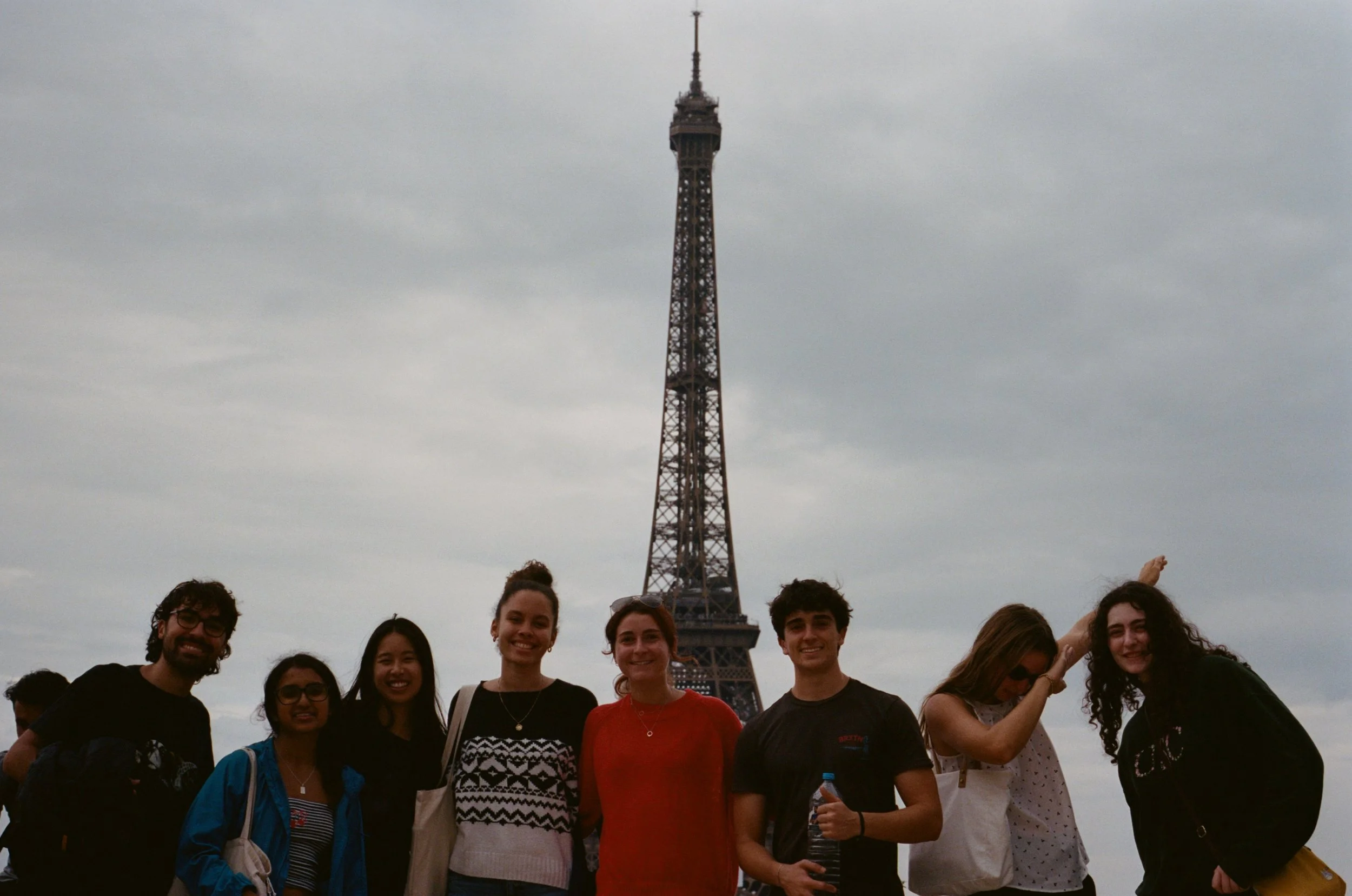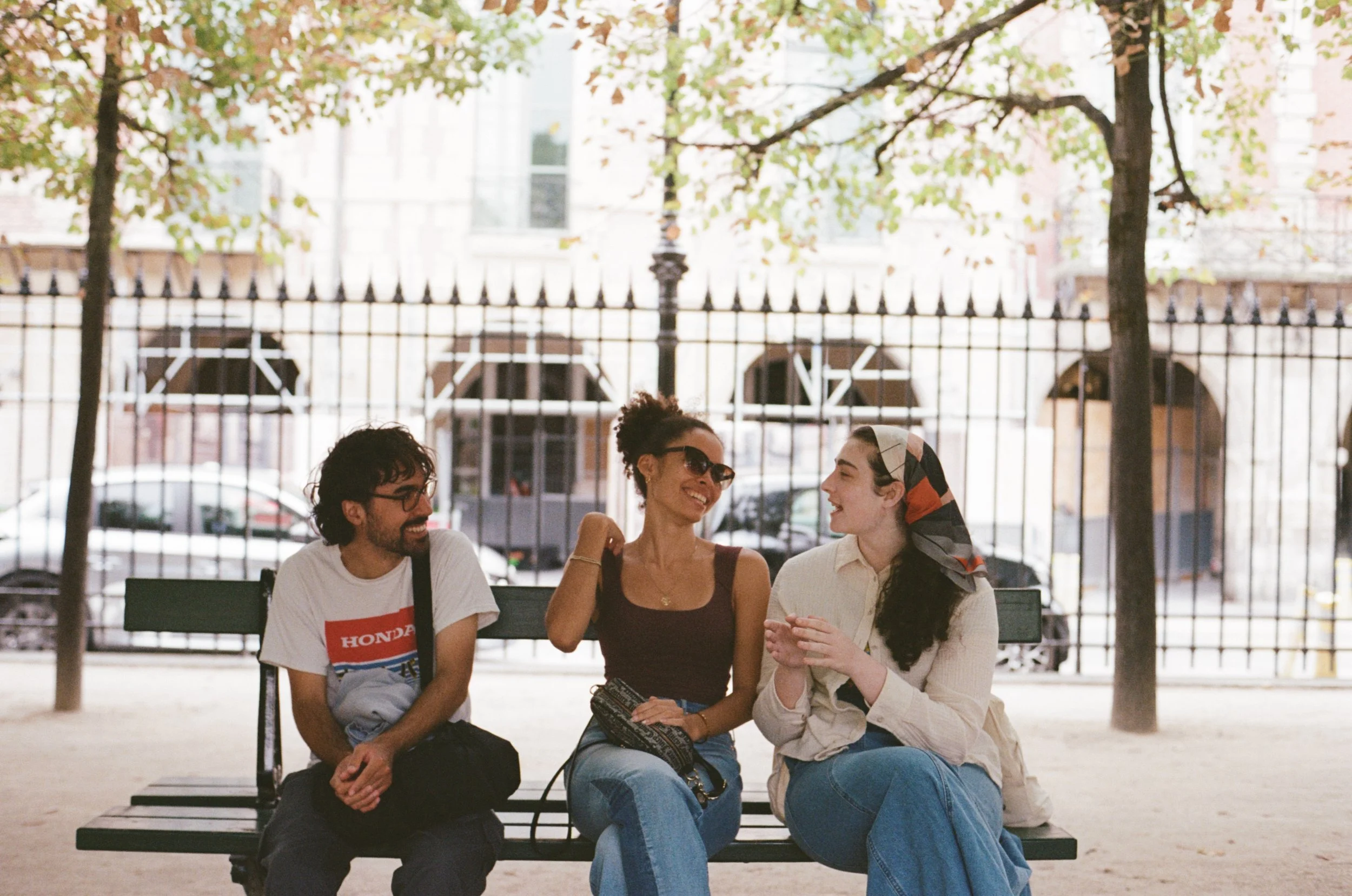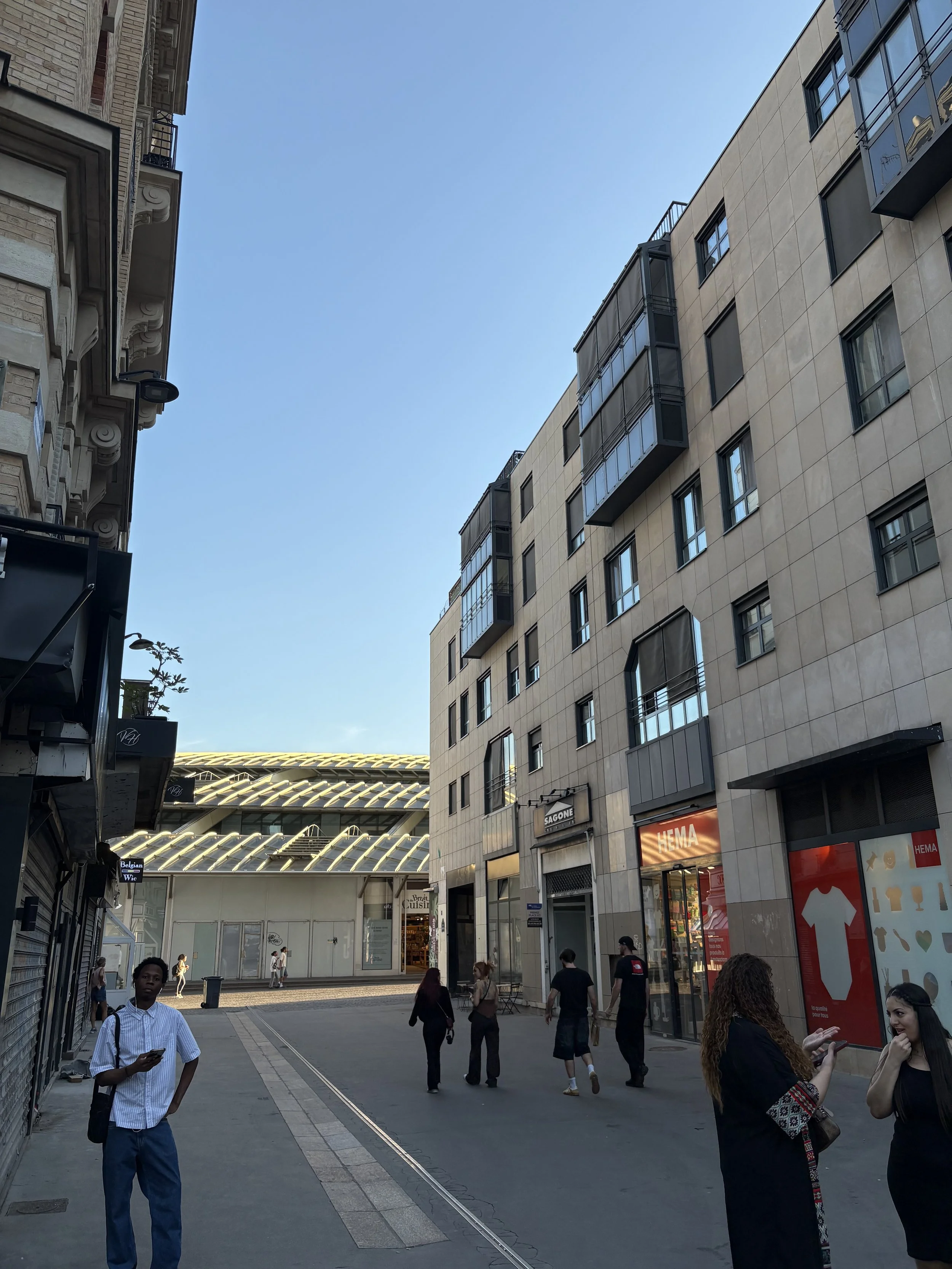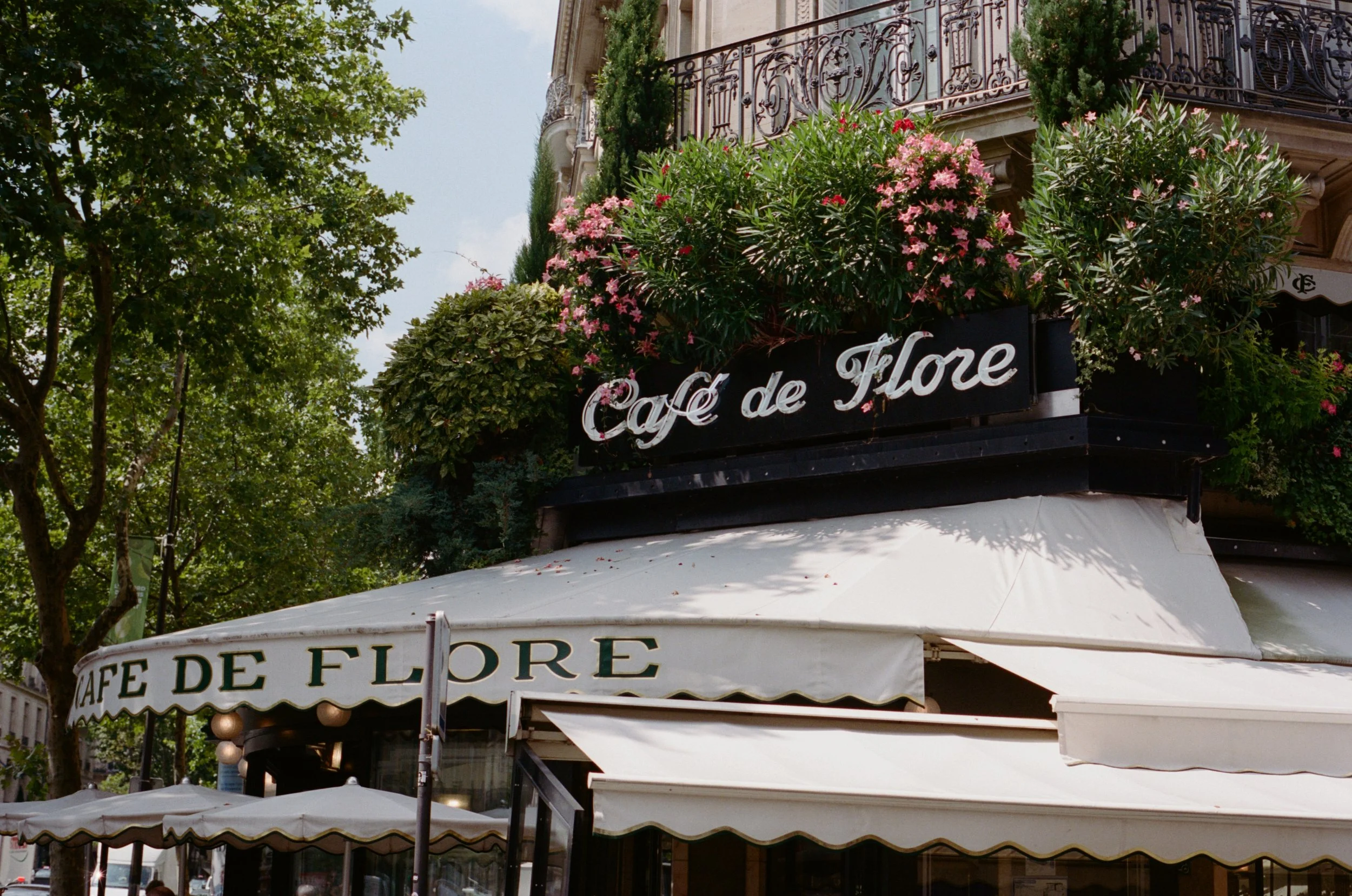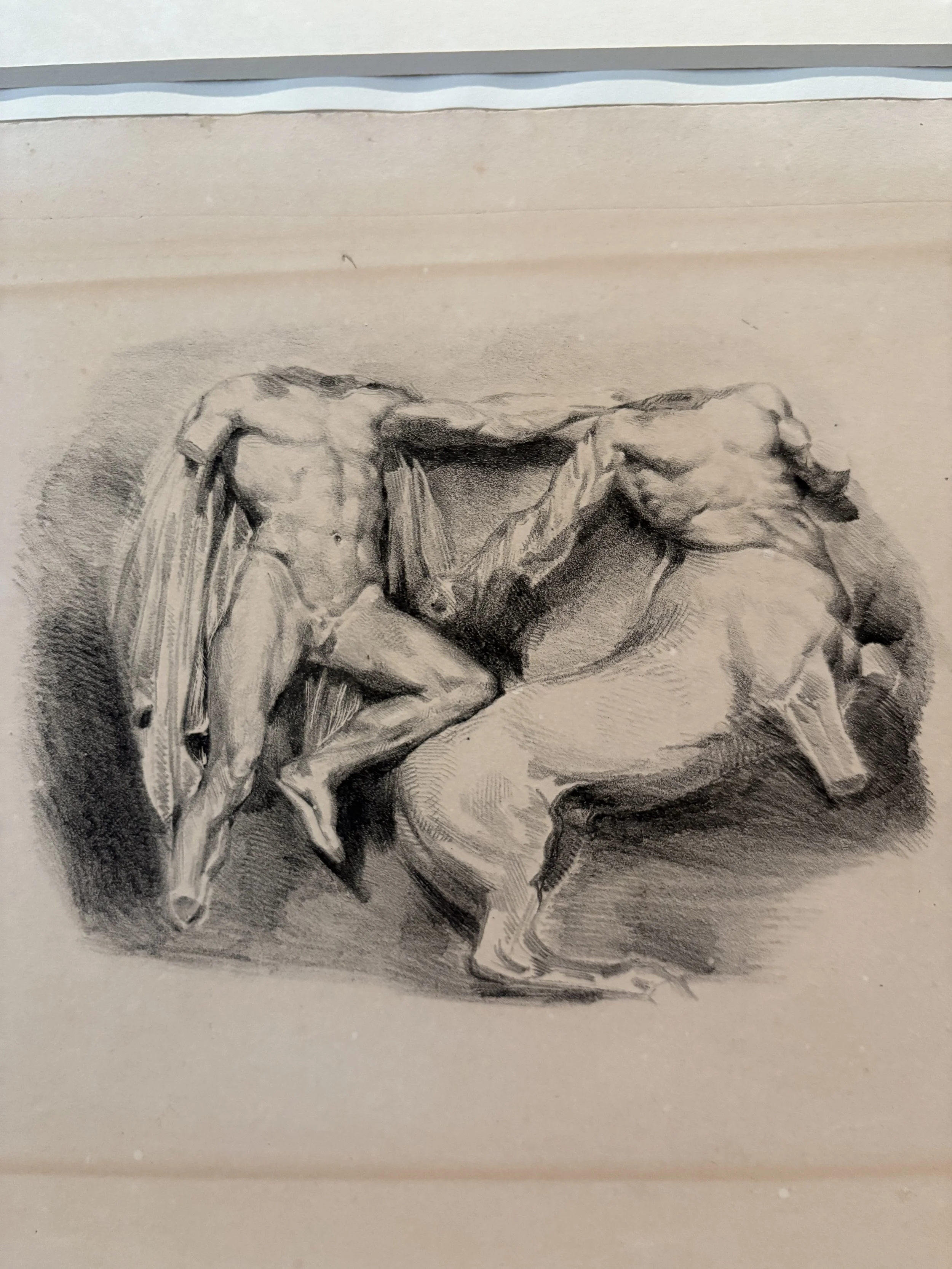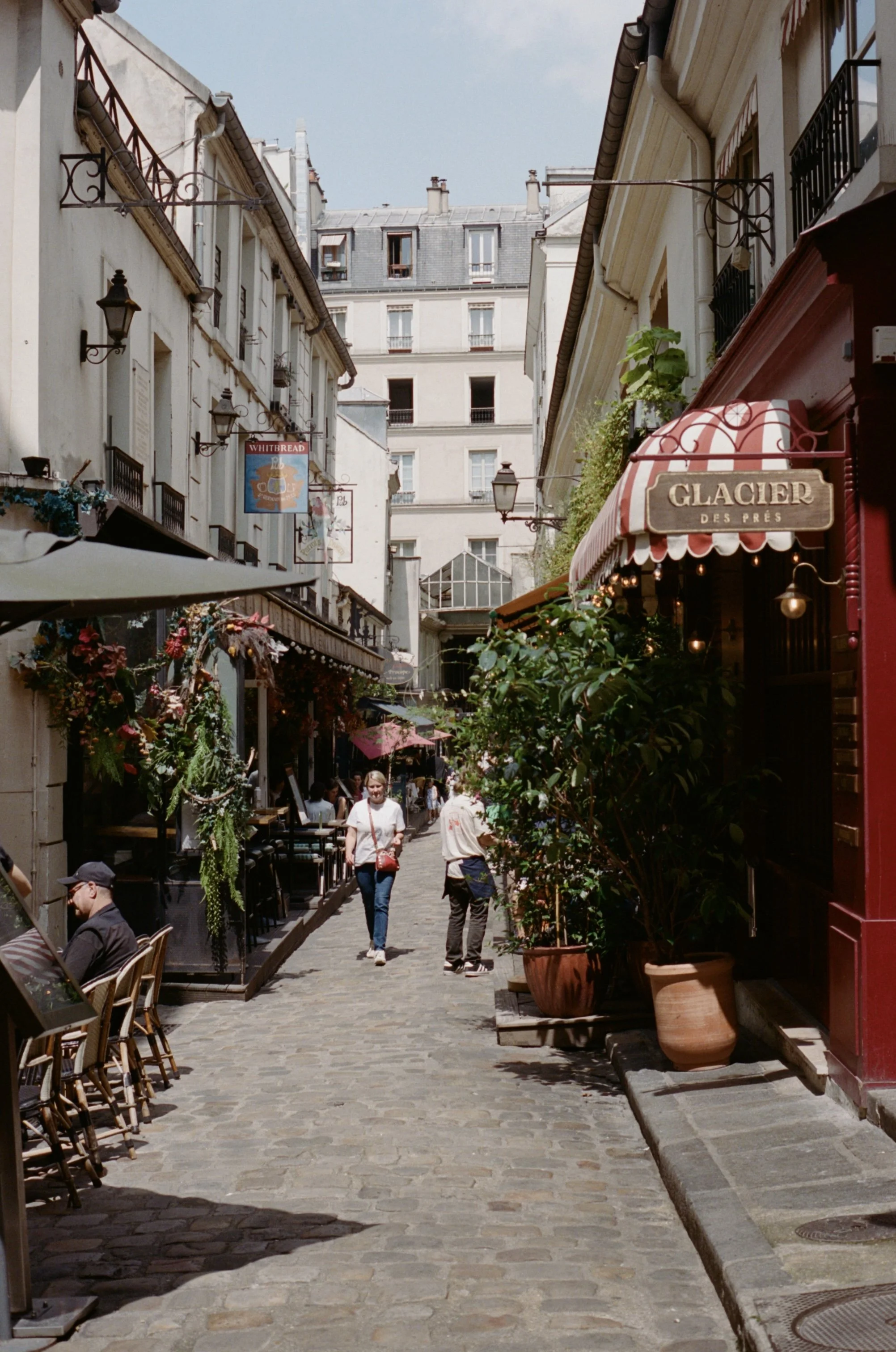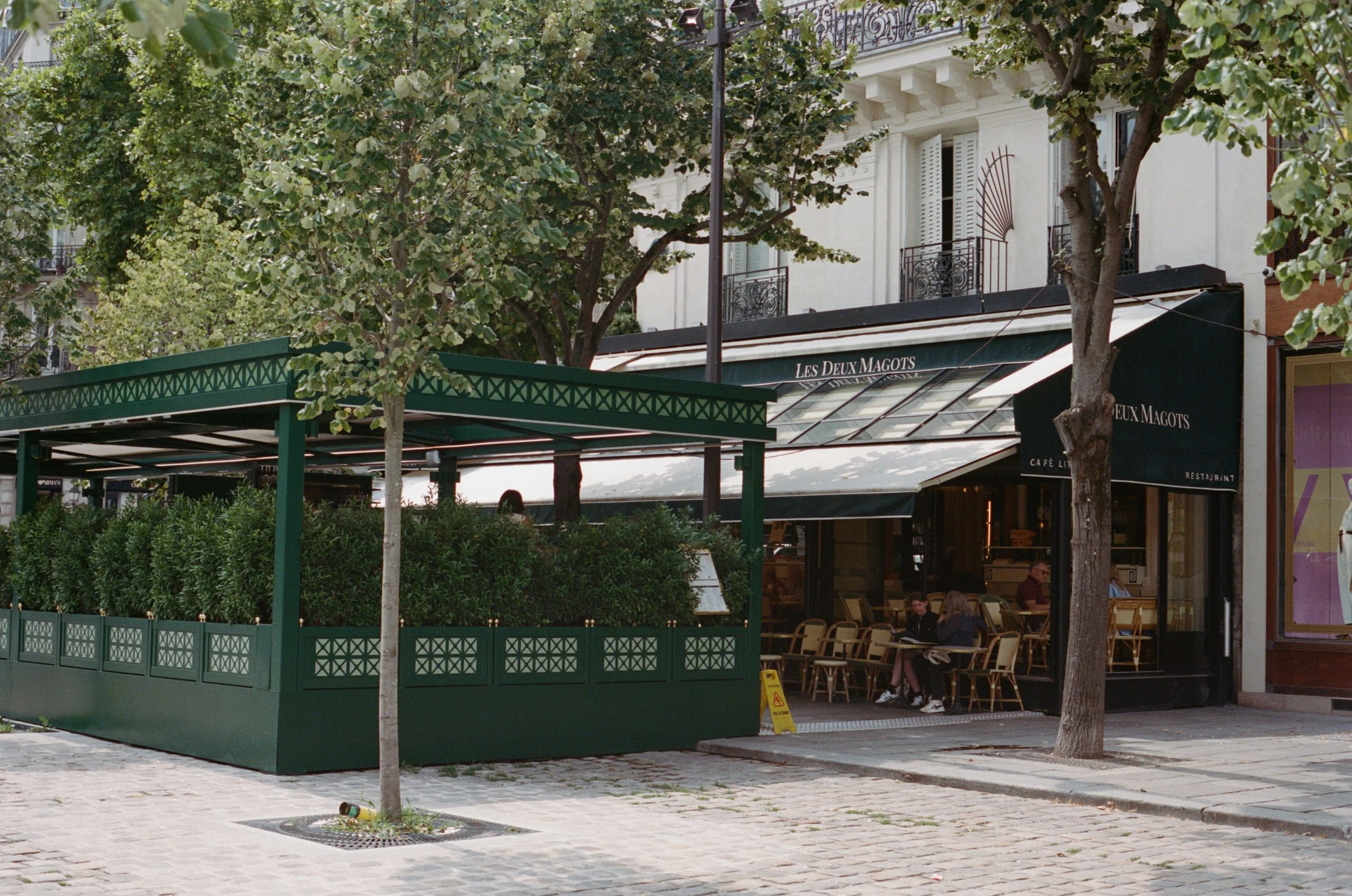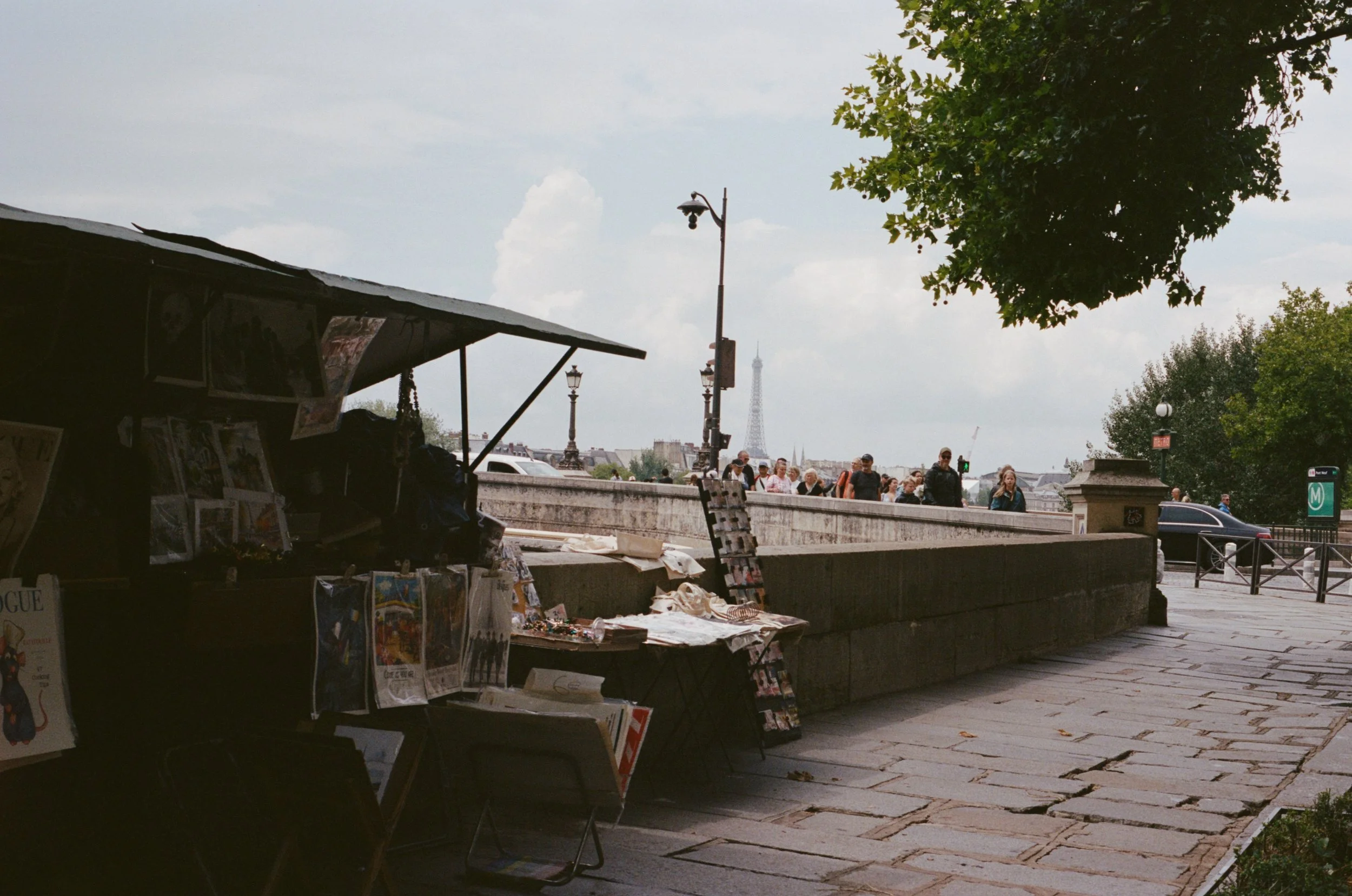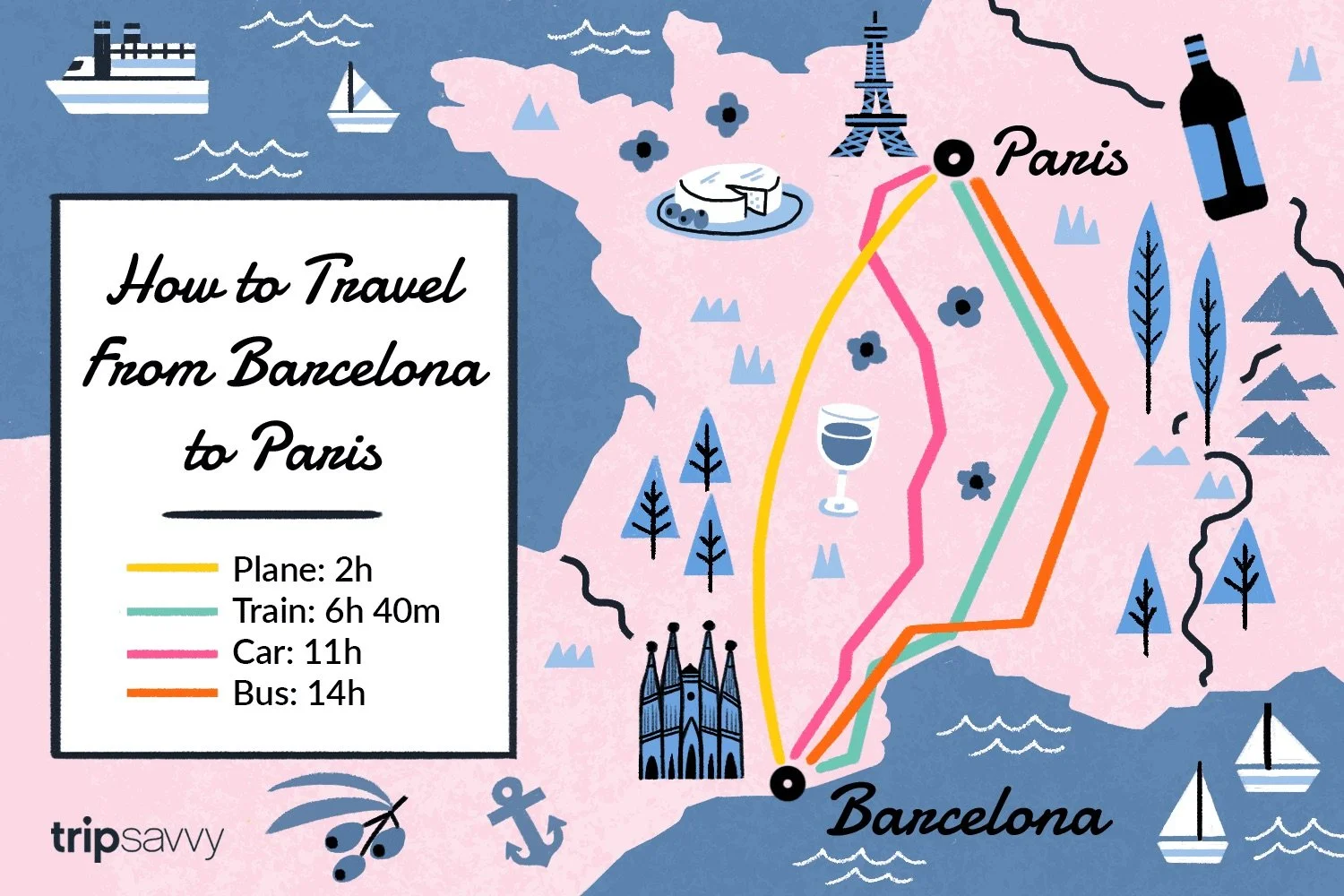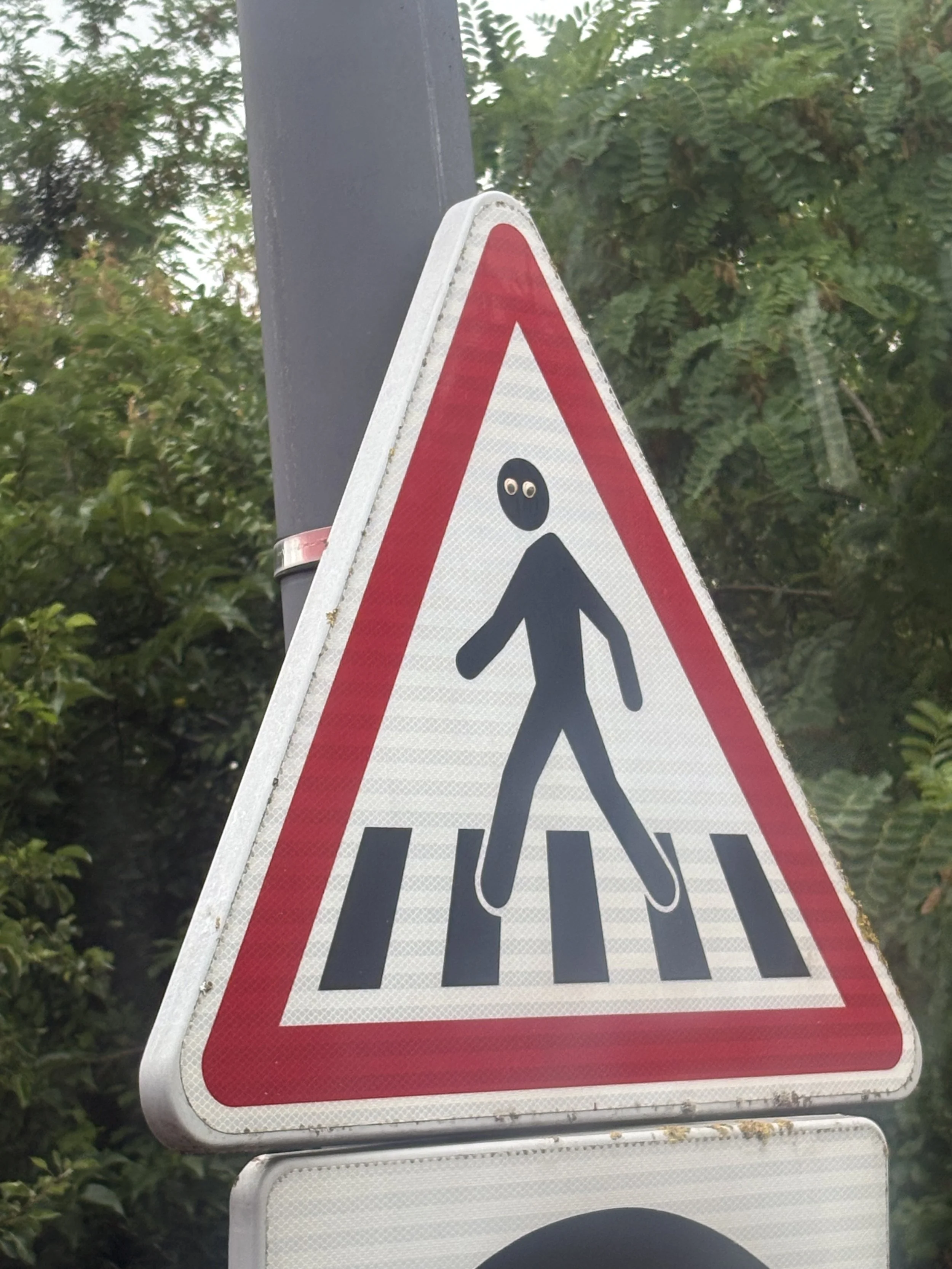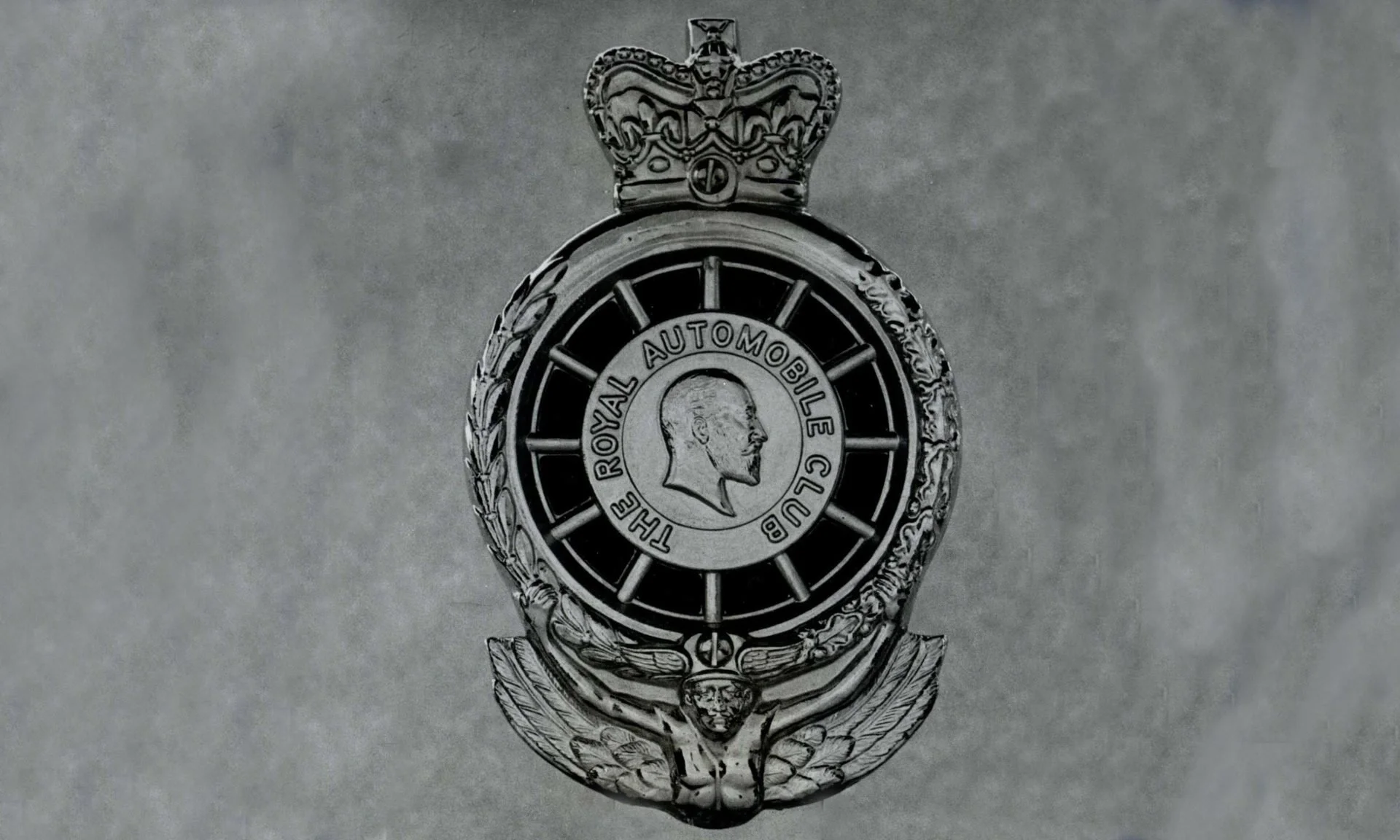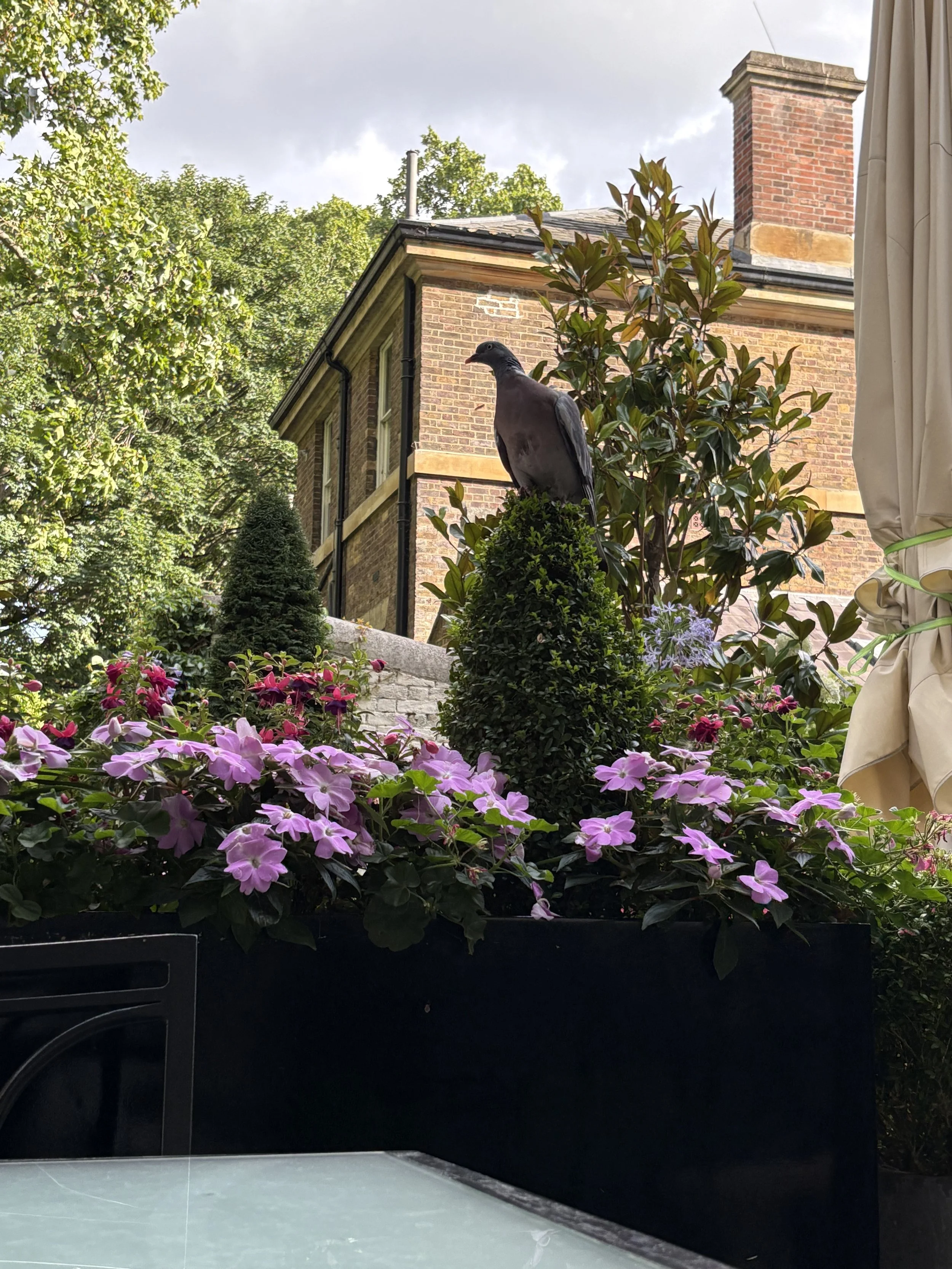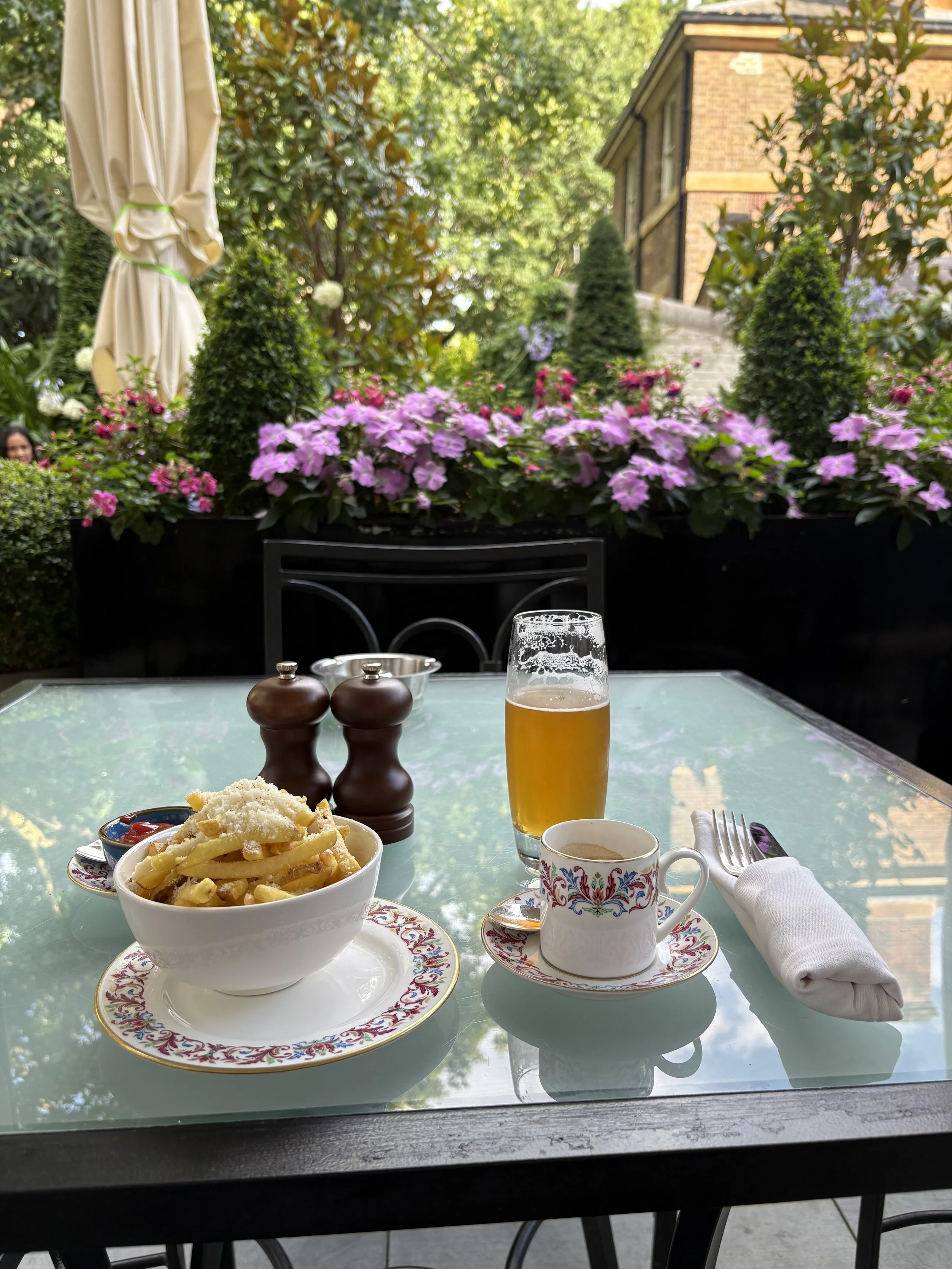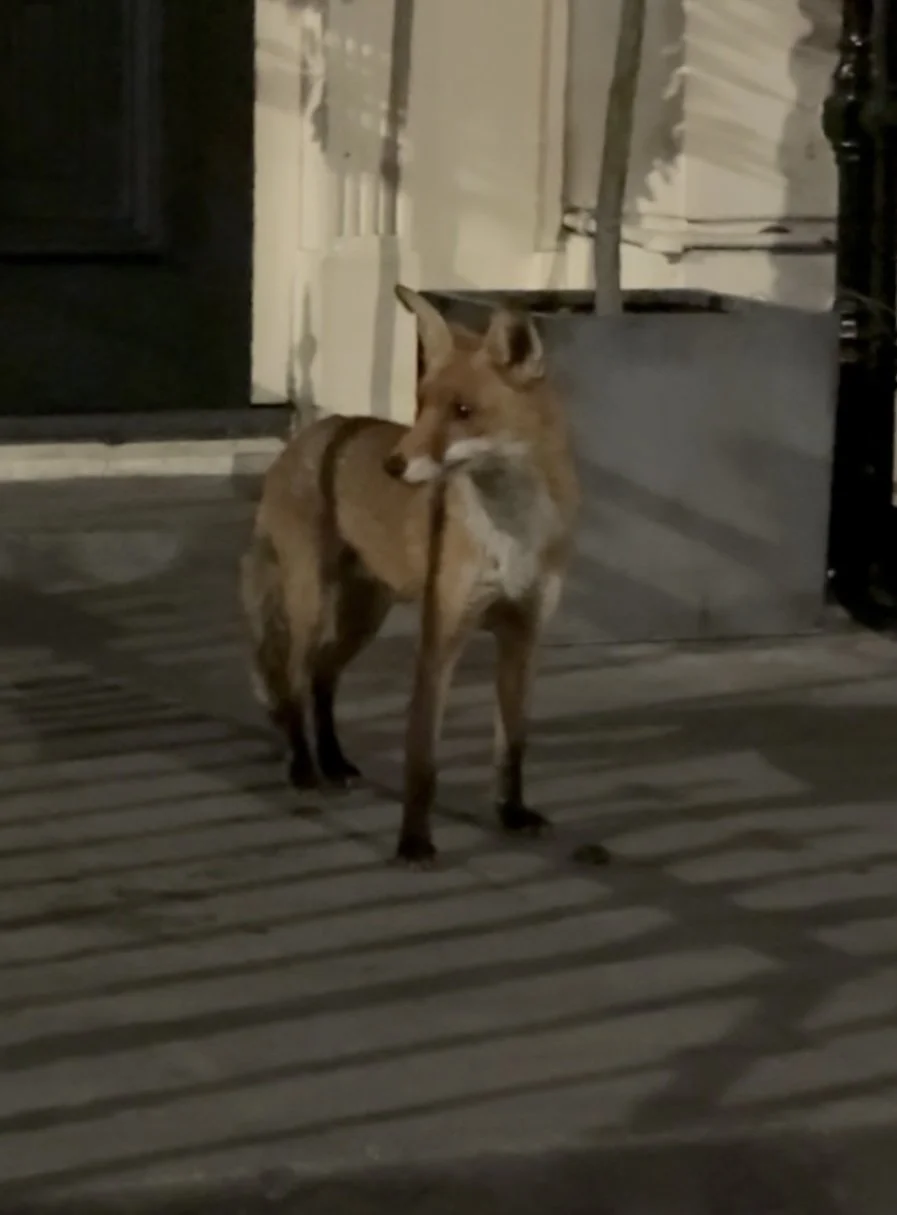The Panthéon, on 35mm
The Panthéon sits on a hill facing north, its sheer strength and grandiose size act like a guide for all who are lost. It stands as a beautiful example of uniquely Neoclassical architecture with Roman style (not to be confused with romanesque) domes and Greek appearing columns. As you step in you're greeted with its massive ceilings that make you feel small but, in some strange way, important. Inscribed above the entrance high above your head you notice the passage “Aux grands hommes la patrie reconnaissante,” meaning “To the great men, the grateful homeland.”
The Panthéon, on 35mm
Victor Hugo is buried just below the limestone I stand on, stuck down there with some of France’s most prominent writers and thinkers. Fitting that he should be immortalized here. Hugo gave many things to France, but to this city he gave it its lore. To really understand what Hugo wrote about you cannot simply stand in grand sun-filled domes. You need to get down below the earth, below the metro, below the sewer.
A slow and endless corkscrew of spiral stairs greets you as you enter. You can feel the temperature drop with every step as you descend, slowly departing the world of the living. The damp stale air doesn't particularly stand out until it's too late, and suddenly it has taken full control of the room that surrounds you. Endless stretches of vast tunnels shoot off in every direction. I couldn't help but imagine how at least one poor soul over the last 200 years must have gotten lost down here before slowly withering away and being completely lost to the wretched bowls of this city.
Finally, you arrive. The expansive halls of a long-gone limestone mine serve as the only buffer between the beautiful city and the empire of the dead. When you finally enter the ossuary it's jarring no matter how mentally prepared you are. Centuries of Parisianas stacked in geometric forms, reduced to no more than simple masonwork. These are the nameless poor that Hugo wrote about, the ones he had a soft spot in his heart for. These were the people that served on Valjean's chain-gang, the ones cast from society into poverty, and the ones that had died a not-so-glorious death at the barricade. In fact, there were even a few stacks of bones labeled from specific battles and uprisings from the revolution of ‘79. Some of the only people to have been buried directly into the catacombs and not exhumed from a previous location. These heroes of the city were reserved as much honor as the city could afford them at that time – one wall and a single memorial for them all.
I didn't expect the catacombs to have such a moving effect on me, but as I hinted at, there's nothing quite like them, and no way to truly prepare for it. Another subterranean place that we visited, different but just as wretched in its own way, was the Paris Sewer Museum. Indeed while these tunnels are just as jarring to the physical senses, they are a lighter weight on the mind, and actually tie directly into our novel Les Misèrables, in a substantial manner. It was these sewers of Paris that Hugo uses as the setting for Valjean’s heroic rescue of Marius. As chaos erupts above ground at the barricade, Valjean takes the opportunity to grab Marius’s unconscious body and escape to the safety of this underworld.







This is an extremely important scene, but to really understand the gravity of it you need to see the metaphor Hugo is trying to paint for us. Hugo writes his book about the poor of an indifferent system, the ‘wretched’ of the world. Although some characters are sacrificed to this system and the darkness that abounds (notably Fantine and Gavroche), the overarching story is one of redemption and ascension. It's about fighting through the all-consuming darkness with every step and emerging into the daylight.
The sewers are Hugo’s metaphor for the underworld that he so vividly unpacks throughout the novel. The grimy part of the city that nobody wants to see, or indeed even ever thinks about, but without which the city above could not survive. This sewer scene is Valjean's final redemption, the completion of his character arc from sinner to saint. Now that you know this I don't have to worry about judgment when I try to describe the grandiose sense of inspiration I felt deep within me as I stood around inspecting the walls of a stinky sewer for one of Europe's largest cities. On the surface (pun intended) these dark tunnels should not compare to the Panthéonn at all and yet, they do. Without them the Panthéon wouldn't exist at all.
We emerged from the sewer the same way I imagine our characters did, with watery eyes and a burning in the lungs. Funnily enough Paris’s sewer museum is very close to the location our characters would have surfaced as well, just on the opposite bank of the Seine. Cross that river and head just up the road and you’d find yourself at the site of the old barricade.
The unassuming location of the barrier
That one was also a favorite location of mine that we had visited. A quiet road connecting a bustling mall and cute plaza sits, almost nameless, as the location for the climax for our novel (if there truly even is one). You could never tell now, but here is where the impromptu wall between defiance and despair was erected all the way back in 1789. No, was it 1793? No that’s not right either, 1830? Shit, 1832.
France is known for its long – turbulent – history, especially in regards to revolution. Hugo lived through most of it and watched it with his own eyes, over and over again. Although this could sap most people of their strength and hope entirely, it had a seemingly opposite effect on Hugo. He witnessed all of these things, the horror, and the beauty, and the love, and the light, and the darkness, and the defiance. He simultaneously watched barricades erected high above ground, reaching up towards the heavens, while reconciling it with the stacks of nameless bones buried deep below the same soil. He recognized more than most that the story of Paris is one of layers. The glory and the grief remain inseparable, and perhaps that is a good thing?
“I am all the writers that I have read, all the people that I have met, all the women that I have loved; all the cities I have visited”
Walking away from the barricade that day I reflected on my own path, both through this city, and my life at large. How so many things have mirrored our novel, the recurring themes, and this inevitable battle of good vs evil. My strong moral compass has perhaps been the single greatest source of pride in my life. I have held it in the highest regard. Now, after four weeks, multiple countries, and two profound novels, I question even that as I return to my own path. My path, a seemingly endless expanse of a road that is simultaneously inspiring and terrifying. However, I take comfort that I am staring down it through a new lens, perhaps even with a new set of eyes entirely. My time in this class, and on this journey, has had a profound impact on how I see the world, and how I will continue to move through it. I have gathered more inspiration than I could have ever expected, and look forward to capitalizing on it upon my return home. Thank you to all who took the time to read and follow along on my journey, to my new friends I've made along the way, and to our outstanding professor for organizing such a wonderful journey. See you all back in Los Angeles.
